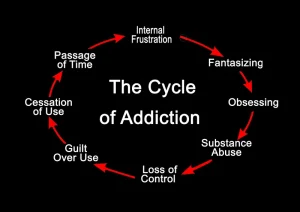It is very important that your doctor check your or your child’s progress at regular visits to make sure the medicine is working properly. Blood tests and blood pressure tests may be needed to check for unwanted effects. Your doctor may occasionally stop treatment to check symptoms of ADHD. The amount of medicine that you take depends on the strength of the medicine. Also, the number of doses you take each day, the time allowed between doses, and the length of time you take the medicine depend on the medical problem for which you are using the medicine.
International Patients
- Recovered is not a medical, healthcare or therapeutic services provider and no medical,psychiatric, psychological or physical treatment or advice is being provided by Recovered.
- To find out how this drug might interact with something else you’re taking, talk to your doctor or pharmacist.
- A small 2015 study of adults without ADHD found that combining Ritalin with THC caused a significant increase in heart rate compared to Ritalin alone.
- Before you begin taking Adderall, discuss your mental health with your doctor.
- Because of their high potential for abuse, the substances are also classified as Schedule II drugs by the U.S.
Amphetamines are the second most commonly used illicit drug worldwide. This review highlights the dermatological manifestations of amphetamine abuse. If your cannabis use is interfering how long do amphetamines stay in your system with your day-to-day functioning, it’s time to seek help. Remember that even in states with recreational cannabis programs, cannabis is illegal for people who are under the age of 21.
Adderall Interactions and Long-Term Effects
Also contact your provider if you are having withdrawal symptoms that concern you. If you have severe withdrawal symptoms, you may need to stay at a live-in treatment program. You usually do not get addicted to prescription amphetamines when you take them at the right dosage to treat your health condition. This includes prescription and over-the-counter medicines, vitamins, and herbal products.
Amphetamine Addiction Treatment
- Amphetamines are stimulant drugs, which means they speed up the messages travelling between the brain and the body.
- The average household teaspoon may not hold the right amount of liquid.
- This drug can cause serious heart problems or make existing heart problems worse.
- Amphetamine is a powerful stimulator of the central nervous system.
- Methylenedioxymethamphetamine, commonly known as “ecstasy”, belongs to the amphetamine family; it is illicitly manufactured and widely abused but not contained in any medicinally used pharmaceutical.
Methamphetamine abuse may also worsen the progression of HIV and its consequences. In animal studies, methamphetamine increased viral replication; in human methamphetamine abusers, HIV caused greater neuronal injury and cognitive impairment compared with non-drug abusers. Methamphetamine is structurally similar to the neurotransmitter dopamine.
- This may increase your risk of extremely high blood pressure, chest pain, severe headache, and high body temperature.
- In 1971, the Bureau of Narcotics and Dangerous Drugs — now the U.S.
- Events in the early 1990’s likely influenced the utilization of amphetamine as a prescribed treatment.
- To help avoid interactions, your doctor should manage all of your medications carefully.
- Weigh the potential benefits against the potential risks before taking this medication while breastfeeding.
Amphetamine can produce many side effects, ranging from mild to severe. From the 1930s, amphetamine was used to treat affective disorders, obsessive-compulsive disorder (OCD), and schizophrenia. Under the name Benzedrine, amphetamines were first used to treat obesity in the 1930s, due to their appetite-suppressing capabilities. In a person with this condition, strong emotions can trigger a sudden loss of muscle tone, or cataplexy, which causes a person to collapse and possibly fall down. Amphetamine activates receptors in the brain and increases the activity of a number of neurotransmitters, especially norepinephrine and dopamine. Because weed (Cannabis sativa) has been linked to relaxation, many people wonder if it can be helpful in managing ADHD symptoms such as trouble focusing and impulsive behavior.
What are the more common side effects of Adderall?
If you are taking amphetamines as a new parent, talk with your provider about whether or not it is safe to breastfeed. You shouldn’t drink alcohol while taking amphetamines because it could cause an unsafe reaction in your body that could lead to addiction. If you take an immediate-release amphetamine, wait at least four to six hours before drinking any alcohol. If you take an extended-release amphetamine, wait at least eight hours before drinking alcohol.
What are the serious side effects of Adderall?
In most cases, ADHD doesn’t qualify for state medical marijuana programs, and cannabis should never be used to treat ADHD in people under age 21. It’s best to have an open and honest conversation with your healthcare provider about using cannabis if you have ADHD. The effects of cannabis are dictated by its levels of THC and CBD, with each having different effects on the brain and body.
Are amphetamines a stimulant?
- Conversely, smoked methamphetamine thermally degrades to yield amphetamine by N-demethylation 23, 77.
- They act like adrenaline, a hormone that is one of the body’s natural stimulants.
- Under the name Benzedrine, amphetamines were first used to treat obesity in the 1930s, due to their appetite-suppressing capabilities.




